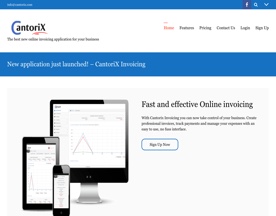If you’re running a business or diving into the financial world, you’ve probably bumped into the terms “CapEx” and “OpEx.” So CapEx vs OpEx, these two financial concepts can seem a bit like alphabet soup, but they’re super crucial in understanding and managing your business’s finances. So, let’s break them down together in a way that’s easy to digest and, more importantly, practical for your business strategy.

What Are CapEx and OpEx?
Alright, so first things first: What exactly are CapEx and OpEx? In the simplest terms, CapEx (Capital Expenditures) and OpEx (Operating Expenditures) are two categories of business expenses, but they’re quite different in nature.
- CapEx refers to the money spent on acquiring, upgrading, or maintaining physical assets like buildings, machinery, or technology. Think of it as investing in the tools you need for your business to grow and thrive long-term.
- OpEx, on the other hand, is all about the day-to-day expenses that keep your business running smoothly. This includes things like rent, utilities, employee salaries, and regular maintenance costs.
Why Do They Matter?
You might be thinking, “Okay, but why does this distinction matter?” Well, understanding the difference between CapEx and OpEx is crucial for tax purposes for several reasons:
- Budgeting and Financial Planning: Knowing how to classify your expenses can help you create more accurate budgets and financial forecasts.
- Tax Implications: CapEx and OpEx have different tax treatments. Typically, CapEx can’t be fully deducted in the year they are incurred but must be depreciated over the life of the asset. Meanwhile, OpEx can usually be deducted in the same year they are incurred.
- Cash Flow Management: Your approach to CapEx and OpEx can significantly impact your cash flow, which is the lifeblood of any business.
- Strategic Decision-Making: The choice between spending on CapEx or OpEx can influence your business strategy and growth trajectory.
CapEx and OpEx in Different Business Models
The importance of CapEx and OpEx can vary significantly depending on your business model. For instance, a manufacturing company might have high CapEx due to expensive machinery, while a software company might focus more on OpEx with ongoing costs like cloud services and employee salaries.
Understanding the Balance
Finding the right balance between CapEx and OpEx is like walking a tightrope. Lean too much on CapEx, and you might strain your company’s cash flow too. Overemphasize OpEx, and you might miss out on long-term investments that could fuel growth. It’s about striking that perfect balance tailored to your business needs.
Key Points:
- CapEx involves expenses for long-term assets; OpEx covers day-to-day operating costs.
- They have different impacts on budgeting, tax, cash flow, and strategic decisions.
- The balance between CapEx and OpEx varies across different business models.

Software Tools to Help with CapEx and OpEx
Effectively managing CapEx (Capital Expenditures) and OpEx (Operating Expenditures) is essential for any business, and the right software tools can make a world of difference. Here’s an expanded list of tools that can help you with these financial aspects:
QuickBooks
A go-to tool for small to medium-sized businesses, QuickBooks offers a comprehensive suite for managing both CapEx and OpEx. It’s great for tracking expenses, managing invoices, and even preparing for taxes. The user-friendly interface and robust reporting features make financial management accessible even for those without a background in finance.
SAP ERP
For larger enterprises with more complex financial needs, SAP ERP is a powerhouse. It provides extensive modules for financial management, including detailed tracking and analysis of CapEx and OpEx. SAP ERP helps in long-term financial planning, budgeting, and provides insights for strategic decision-making.
FreshBooks
FreshBooks is particularly favored by freelancers and small businesses for its simplicity and efficiency. It excels in tracking day-to-day operating expenses (OpEx) and can be a great tool for those looking to keep a close eye on their own operational expenses and costs without getting bogged down by overly complex features.
Xero
Xero is another excellent cloud-based accounting software, known for its ease of use and real-time financial insights. It’s particularly useful for managing OpEx with features like automatic bank feeds, invoicing, and expense claims. Xero also integrates with various other business applications, providing a comprehensive ecosystem for managing your finances.
Oracle NetSuite
Oracle NetSuite is ideal for businesses looking for a scalable solution. It offers robust functionalities for both CapEx and OpEx management, including asset management, budgeting, and expense tracking. Its real-time data analytics can be incredibly valuable for making informed strategic decisions.
PlanGuru
PlanGuru is specifically designed for budgeting and forecasting, which is crucial in managing both CapEx and OpEx. It allows businesses to create financial forecasts and budgets, helping in strategic planning and financial stability.
Each of these tools offers unique features and benefits, and the best choice depends on your specific business needs, size, and industry.
Whether you’re a small startup or a large enterprise, these tools can help you manage your CapEx and OpEx more effectively, leading to less operational expenditures and better financial health and growth prospects for your existing asset or business.
Key Points:
- QuickBooks is ideal for small to medium businesses for comprehensive financial management.
- SAP ERP offers extensive modules for larger enterprises with complex financial needs.
- FreshBooks is user-friendly, great for freelancers and small businesses focusing on OpEx.
- Xero provides real-time financial insights, perfect for operational expense management.
- Oracle NetSuite is scalable, offering robust functionalities for both CapEx and OpEx.
- PlanGuru specializes in budgeting and forecasting, essential for financial planning.

FAQs About CapEx and OpEx
How Does CapEx Affect Cash Flow?
CapEx, or capital expenditures, involve significant upfront costs for acquiring or upgrading long-term assets like machinery, equipment, or buildings. This capital expenditure can lead to a substantial outflow of cash, potentially affecting your business’s liquidity in the short term. However, these investments are essential for your company’s income statement and long-term growth and can lead to increased production, efficiency, and eventually, profitability. It’s a delicate balance: invest too little, and you might hinder growth; too much, and you might strain your business operations immediate cash resources.
Can OpEx Improve Profitability?
Yes, effectively managing Operating Expenditures (OpEx) can significantly improve your business’s profitability. OpEx includes day-to-day expenses such as salaries, your office supplies, your office rent, utilities, and maintenance. By optimizing these costs, like renegotiating contracts or adopting more efficient processes, you can reduce operational costs, thereby improving the bottom line. However, it’s crucial not to cut corners in a way that affects the quality of your products or services.
Is It Better to Have Higher CapEx or OpEx?
The preference for higher CapEx or OpEx depends on your business model, industry, and growth phase. High CapEx might indicate investment in long-term assets, crucial for manufacturing or heavy industries. Conversely, a services-based or tech company might have higher OpEx due to ongoing costs like software subscriptions and payroll.
The key is to understand which type of capital expenditure and operational that capital expenditure really drives value for your business and how operational expenditure aligns with your growth strategies.
How Do CapEx and OpEx Affect Taxation?
The tax implications for CapEx and OpEx are quite different. For CapEx, the cost of the asset is typically capitalized and depreciated over its useful life, spreading the tax deduction over several years. This can be beneficial for long-term tax planning. Operational expenditures are generally tax deductible, provided they are “ordinary and customary costs” to keep the business running.
In contrast to capital expenses, OpEx can usually be fully deducted in the tax year that they are incurred, providing an immediate tax benefit on net income. This distinction is crucial for tax planning and financial reporting.
Can You Shift from CapEx to OpEx?
Yes, a shift from CapEx to OpEx is possible and often desirable in certain scenarios. This shift is commonly seen in companies moving from owning physical assets to using cloud-based services. For instance, instead of purchasing servers (a CapEx), a company might use cloud storage solutions (an OpEx), offering greater flexibility and potentially better cash flow management.
How Does Technology Impact CapEx and OpEx?
Advancements in technology, particularly cloud computing and Software as a Service (SaaS), have significantly impacted how businesses approach CapEx and OpEx. These technologies allow companies to reduce upfront capital investments (CapEx) and instead incur regular operational costs (OpEx) for using cloud or subscription-based services. This shift can lead to more predictable budgeting, improved free cash flow, and often, access to the latest technologies without significant upfront investments.
How Do Startups Approach CapEx and OpEx?
Startups typically focus more on OpEx than CapEx, mainly due to their need for flexibility and limited initial capital. OpEx, unlike capital expenditures investing activities such as renting office space, paying salaries, and using cloud services, allows startups to scale up or down quickly based on their growth and funding stages. As startups stabilize and grow, they might gradually increase their CapEx, investing in both long term value in-term and intangible assets, that align with their expansion goals.
Are Employee Salaries Considered CapEx or OpEx?
Employee salaries and employee wages are considered Operating Expenditures (OpEx). They are regular, recurring expenses essential for the daily operation of the business. Unlike CapEx expenses, or depreciation expense which is typically one-time or infrequent expenses for long-term assets, operating expense and salaries expenses are ongoing costs that companies plan for on a monthly or annual basis.
Is There a Trend Toward Increasing OpEx in Business?
Yes, there’s a noticeable trend towards increasing OpEx in many industries, particularly those heavily reliant on technology and services.
This shift in operational and capital expenditures is largely driven by the adoption of cloud computing, SaaS models, and outsourcing, which replace the need for significant capital investments in hardware and infrastructure with more flexible, subscription-based operational expenses.
How Important Is Understanding CapEx and OpEx for Investors?
For investors, understanding how a company manages its CapEx and OpEx is critical. It provides insight into the company’s growth strategy, financial health, and management efficiency. A company that strategically invests in CapEx is likely positioning itself for future growth, while efficient OpEx management indicates good day-to-day operational control.
Investors often analyze the balance of operating expenditure and trends in cash flow statement these operational expenditures, to assess the long-term viability and profitability of a company and business operations each accounting period.
Key Points:
- CapEx and OpEx have different impacts on cash flow, profitability, and tax.
- The balance between CapEx and OpEx depends on the business model and growth stage.
- Technology shifts and business models are influencing the CapEx and OpEx balance.

Conclusion
Embracing Financial Literacy: The Power of Knowing CapEx and OpEx
Understanding CapEx (Capital Expenditures) and OpEx (Operating Expenditures) goes beyond mere financial literacy. It’s about empowering yourself with the knowledge to make informed decisions that can shape the future of your business. Whether you’re a startup entrepreneur, a seasoned business owner, or even an investor, grasping these concepts is essential.
Strategic Decision-Making: Balancing Short-Term and Long-Term Goals
The crux of managing CapEx and OpEx lies in balancing your short-term needs with long-term objectives. While OpEx ensures your business’s day-to-day operations run smoothly, CapEx is about investing in your future. This same balance sheet is not static; it evolves as your business grows and as market conditions change. The ability to adapt your company’s financial statements and strategy accordingly is a hallmark of a robust business model.
The Role of Technology and Changing Business Environments
In today’s rapidly changing business landscape, driven by technological advancements and evolving consumer demands, the way businesses approach CapEx and OpEx is also transforming. The rise of cloud computing, for instance, has enabled a shift from capital-intensive investments in IT infrastructure (CapEx) to more flexible, subscription-based services (OpEx).
Staying abreast of these trends and understanding their future benefits and how they impact the future benefit of fixed assets in your financial planning is critical.
Future-Proofing Your Business
Looking ahead, the importance of effectively managing CapEx and OpEx will only grow. As businesses navigate uncertainties and opportunities alike, those who can optimize their capital expenditures will have a competitive edge. It’s about making strategic investments that foster growth while maintaining the agility to adapt to changing circumstances.
Personal Reflections and Advice
From my experience, I’ve seen businesses thrive when they strike the right balance between CapEx and OpEx. It’s about being prudent yet bold, conservative yet innovative. My advice?
Regularly review your expenditures, stay informed about market trends, and don’t hesitate to leverage technology and expert advice to optimize your financial management.
Final Thoughts
In closing, remember that understanding and managing CapEx and OpEx is not just about numbers on a balance sheet. It’s about shaping the narrative of your business journey. It’s a continuous process of learning, adapting, and making decisions that align with your vision for the future.
In the world of business finance, CapEx and OpEx are two sides of the same coin, each playing a pivotal role in your business’s success story. By mastering the art of balancing them, you’re not just managing operating expenses well; you’re crafting a roadmap for sustainable growth and long-term success.















